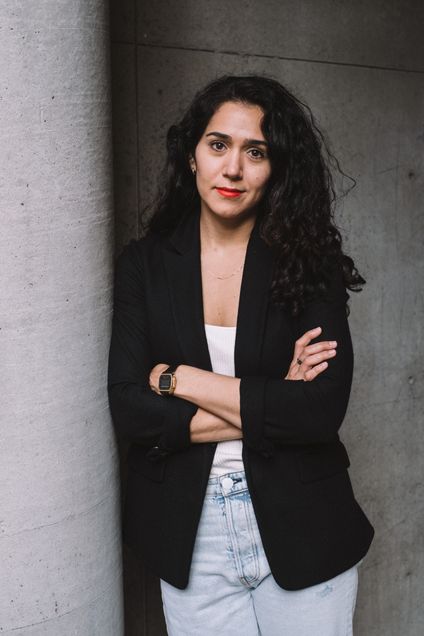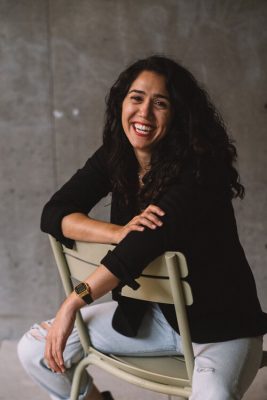Junior Faculty Fellow Working to Create Antiracist Workplaces
BY: NATALIE GOLD
Sanaz Mobasseri has a wealth of business experience, a talent for research, and a drive for studying cultural dynamics that reproduce systemic inequalities. Today, she interweaves her expertise to create antiracist workplaces through her interdisciplinary research on organizational inequalities.
Before Mobasseri was a Hariri Institute Junior Faculty Fellow and an Assistant Professor of Management & Organizations at Questrom School of Business, she spent several years working in finance and consulting. It was here that she first observed company dynamics and learned a lot about how organizations work. Mobasseri also started paying attention to workplace inequalities, after realizing that she was one of just four women professionals in the office. While pursuing her Ph.D. several years later, Mobasseri began to characterize these observations of workplace culture and inequalities.
Investigating race and gender inequalities in organizations is the core of Mobasseri’s research. Mobasseri collects quantitative data from companies about how employees interact with each other, including call or email records, administrative data from human resource departments about career trajectories, and employees’ survey data. From here, she uses computational tools to assess how company dynamics might perpetuate inequalities. Mobasseri then intervenes with a field experiment, testing different strategies that could change the root cause of the inequalities. Every experiment is specific to the structure and culture of each workplace. One experiment might change a company’s feedback process so that hiring and promotion is not affected by race or gender bias. Another field experiment might aim to mitigate leaders’ defensiveness about systemic racism inside their organizations.
Mobasseri has found that her research process has been affected by the Black Lives Matter protests of last summer. The Black Lives Matter movement led people to examine the systemic racism prevalent in all parts of society, including businesses and workplaces. This renewed attention has not only motivated Mobasseri personally in her work, but it has also pushed other people to assist in her work where possible. “Organizations and their leaders have been much more willing to collaborate in academic research and help me solve problems around getting data, and I’m very excited,” said Mobasseri.
Mobasseri has several motivations for this research. One is mitigating inequalities that have been persistent in the workplace for decades, from promotion and pay gaps to hiring discrimination. When Mobasseri was completing her Ph.D., she noticed that her research findings were the same results from 15 years prior. Her goal is to change these persistent inequalities. “I want in my lifetime to discover at least one thing that will make a lasting dent in this problem,” said Mobasseri.

Through addressing inequalities, Mobasseri also wants to create antiracist workplaces that celebrate people and their differences. Some companies’ cultures cultivate obsessions with achieving ideal ways of working, valorize burnout, or prevent people from asking questions for fears of being perceived as less competent. Mobasseri wants to see these dynamics torn down, and replaced with a culture that celebrates people and the work they do together.
Mobasseri’s motivation to create more equal and welcoming spaces has led her to support research on inequalities in other ways. She is currently working for the Antiracist Tech Initiative at BU’s Center for Antiracist Research to invite organizational leaders to donate their data for antiracist research led by expert teams. These data will also help more researchers like Mobasseri, who benefit greatly from institutional support to complete this complex and collaborative research in an ethical, safe, secure, standardized, and confidential way. “I feel really lucky that this work aligns with some of the research approaches I was already taking,” said Mobasseri.
Ultimately, Mobasseri wants to see the creation of antiracist workplaces that embrace their employees’ humanity and help them combat routine patterns that perpetuate systemic inequalities. She hopes for a workplace culture that embraces all parts of people, especially when work increasingly invades all parts of their lives. “Imagine how much could be created if people experienced less anxiety about raising their hand, less feeling like they don’t fit in, or less stress about being behind or underqualified,” said Mobasseri.
Interested in learning more about the transformational science happening at the Hariri Institute? Sign up for our newsletter here.
